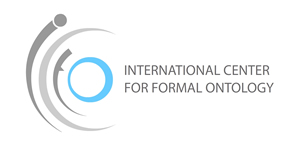- Greif, Hajo, Kubiak, Adam and Stacewicz, Paweł: Selection, Growth and Form. Turing’s Two Biological Paths towards Intelligent Machinery. Studies in History and Philosophy of Science, 106 (2024): 126-135. Special Issue “Robots and Living Organisms: New Historical and Philosophical Perspectives”, edited by Marco Tamborini and Edoardo Datteri.
- Jarnicki, Paweł and Greif, Hajo: The ‘Aristotle Experience’ Revisited. Thomas Kuhn meets Ludwik Fleck on the Road to Structure. Archiv für Geschichte der Philosophie, 106, 2 (2024).
- Skowron Bartłomiej, Stacewicz Paweł: Between Fiction, Reality, and Ideality: Virtual Objects as Computationally Grounded Intentional Objects, Philosophy & Technology, 36 (2), 2023.
- Skowron Bartłomiej, Król Zbigniew, Kąkol Tomasz: The topology of persons, and surviving to some degree, Synthese, vol. 202, 2023.
- Skowron Bartłomiej, Kaczmarek Janusz, Wójtowicz Krzysztof: Towards a topological philosophy, Metaphilosophy, vol. 54, 5, 2023.
- Greif, Hajo, Kubiak, Adam and Stacewicz, Paweł: Turing’s Biological Philosophy: Morphogenesis, Mechanisms and Organicism. Philosophies, 8, 1 (2023): Article 8. Special Issue “Turing the Philosopher: Established Debates and New Developments”, edited by Diane Proudfoot and Zhao Fan.
- Greif, Hajo: Analogue Models and Universal Machines. Paradigms of Epistemic Transparency in Artificial Intelligence. Minds & Machines, 32 (2022): 111-133. Special Issue “Machine Learning: Prediction Without Explanation?”, edited by Florian Boge, Paul Grünke, and Rafaela Hillerbrand.
- Wójtowicz Krzysztof, Skowron Bartłomiej: A metaphysical foundation for mathematical philosophy, Synthese, vol. 200, nr 4, 2022.
- Greif, Hajo: “Likeness-Making and the Evolution of Cognition”. Biology & Philosophy, 37 (2022): Article 1.
- Greif, Hajo: Adaptation and its Analogues: Biological Categories for Biosemantics. Studies in History and Philosophy of Science, 90 (2021): 298-307.
- Greif, Hajo: Exploring Minds: Modes of Modelling and Simulation in Artificial Intelligence. Perspectives on Science, 29, 4 (2021): 409-435. Special Issue “Exploratory Models and Exploratory Modelling in Science”, edited by Axel Gelfert, Grant Fisher, and Friedrich Steinle.
- Lubacz, Józef Epistemic and poietic intentional processes. Synthese (2021). https://doi.org/10.1007/s11229-021-03051-5.
- Li, Z., Zenker, F. Newcomb’s problem isn’t a choice dilemma. Synthese (2021). https://doi.org/10.1007/s11229-020-03018-y
- Skowron Bartłomiej, Wójtowicz Krzysztof: Throwing spatial light: on topological explanations in Gestalt psychology, Phenomenology and the Cognitive Sciences, vol. 20, 2021.
- Wang, B., Zenker, F. Slippery Slope Arguments in Legal Contexts: Towards Argumentative Patterns. Argumentation (2021). https://doi.org/10.1007/s10503-020-09545-9
- Vassallo, A. Does general relativity highlight necessary connections in nature?. Synthese (2021). https://
- Yaskorska-Shah, O. Managing the Complexity of Dialogues in Context: A Data-Driven Discovery Method for Dialectical Reply Structures. Argumentation (2021). https://doi.org/10.1007/s10503-020-09543-x
- doi.org/10.1007/s11229-020-03009-z
- Stacewicz, Paweł and Greif, Hajo: Concepts as Decision Functions. The Issue of Epistemic Opacity of Conceptual Representations in Artificial Computing Systems. Procedia Computer Science 192 (2021): 4120–27.
- Andrzej Biłat, The correctness and relevance of the modal ontological argument, Synthese (2020), https://doi.org/10.1007/s11229-020-02908-5.
- Gärdenfors, Peter, Quinon, Paula, Situated Counting. Rev.Phil.Psych. (2020). https://doi.org/10.1007/s13164-020-00508-3
- Paula Quinon, Can Church’s thesis be viewed as a Carnapian explication?, Synthese (2019). https://doi.org/10.1007/s11229-019-02286-7
- Contemporary Polish Ontology, ed. B. Skowron, De Gruyter 2019.
- Marcin Koszowy, Douglas Walton (2019). Epistemic and deontic authority in the argumentum ad verecundiam. Pragmatics and Society, 10(2): 151-179. DOI: 10.1075/ps.16051.kos.
- Marcin Koszowy, Michał Araszkiewicz (2014). The Lvov-Warsaw School as a source of inspiration for argumentation theory. Argumentation 28(3): 283-300. DOI 10.1007/s10503-014-9321-7.
- Andrzej Biłat, The World as an Object of Formal Philosophy, In Contemporary Polish Ontology (pp. 87–108). Berlin, Boston: De Gruyter. https://doi.org/10.1515/9783110669411-006
- Przedmioty wirtualne, (eds.) P. Stacewicz, B. Skowron, Oficyna Wydawnicza Politechniki Warszawskiej, Warszawa 2019.
- Category Theory in Physics, Mathematics, and Philosophy, (eds.) M. Kuś, B. Skowron, Springer 2019, https://doi.org/10.1007/978-3-030-30896-4
- Frank Zenker, Christian Dahlman, Sverker Sikström, Lena Wahlberg, Farhan Sarwar, Generalization in Legal Argumentation, Journal of Forensic Psychology Research and Practice, Pages 80-99, https://doi.org/10.1080/24732850.2019.1689782
- Frank Zenker, From Stories—via Arguments, Scenarios, and Cases—to Probabilities: Commentary on Floris J. Bex’s “The Hybrid Theory of Stories and Arguments Applied to the Simonshaven Case” and Bart Verheij’s “Analyzing the Simonshaven Case With and Without Probabilities, Top Cogn Sci. doi:10.1111/tops.12477
- Hajo Greif, Affording Illusions? Natural Information and the Problem of Misperception, Avant, Vol. X, No. 3/2019, doi: 10.26913/avant.2019.03.19.
- Zbigniew Król, Platonism and the Development of Mathematics. Infinity and Geometry, ISBN 978-83-7683-096-4, 2015.
- Roman Z. Morawski, Technoscientific Research Methodological and Ethical Aspects, De Gruyter, 978-3-11-058406-6, 2019.
- Bartłomiej Skowron, Tomasz Bigaj, Arkadiusz Chrudzimski, Michał Głowala, Zbigniew Król, Marek Kuś, Józef Lubacz, Rafał Urbaniak (2019). An Assessment of Contemporary Polish Ontology. In Bartłomiej Skowron (Editor), Contemporary Polish Ontology (pp. 271–294). Berlin, Boston: De Gruyter. https://doi.org/10.1515/9783110669411-015.
- Skowron, B., Wójtowicz, K. Throwing spatial light: on topological explanations in Gestalt psychology. Phenom Cogn Sci (2020). https://doi.org/10.1007/s11097-020-09691-1\
